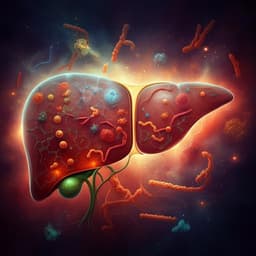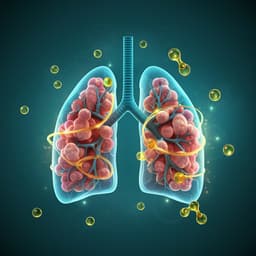
Medicine and Health
GV-971 prevents severe acute pancreatitis by remodeling the microbiota-metabolic-immune axis
X. Chen, X. Chen, et al.
Discover how GV-971, an anti-Alzheimer's drug, offers unexpected protection against severe acute pancreatitis in male mice. This innovative research, conducted by esteemed authors from the Affiliated Cancer Hospital & Institute of Guangzhou Medical University, reveals a fascinating interplay between gut microbiota and the immune system, modulated by key metabolites. Learn how targeting this axis could pave the way for new therapies!
Playback language: English
Related Publications
Explore these studies to deepen your understanding of the subject.







